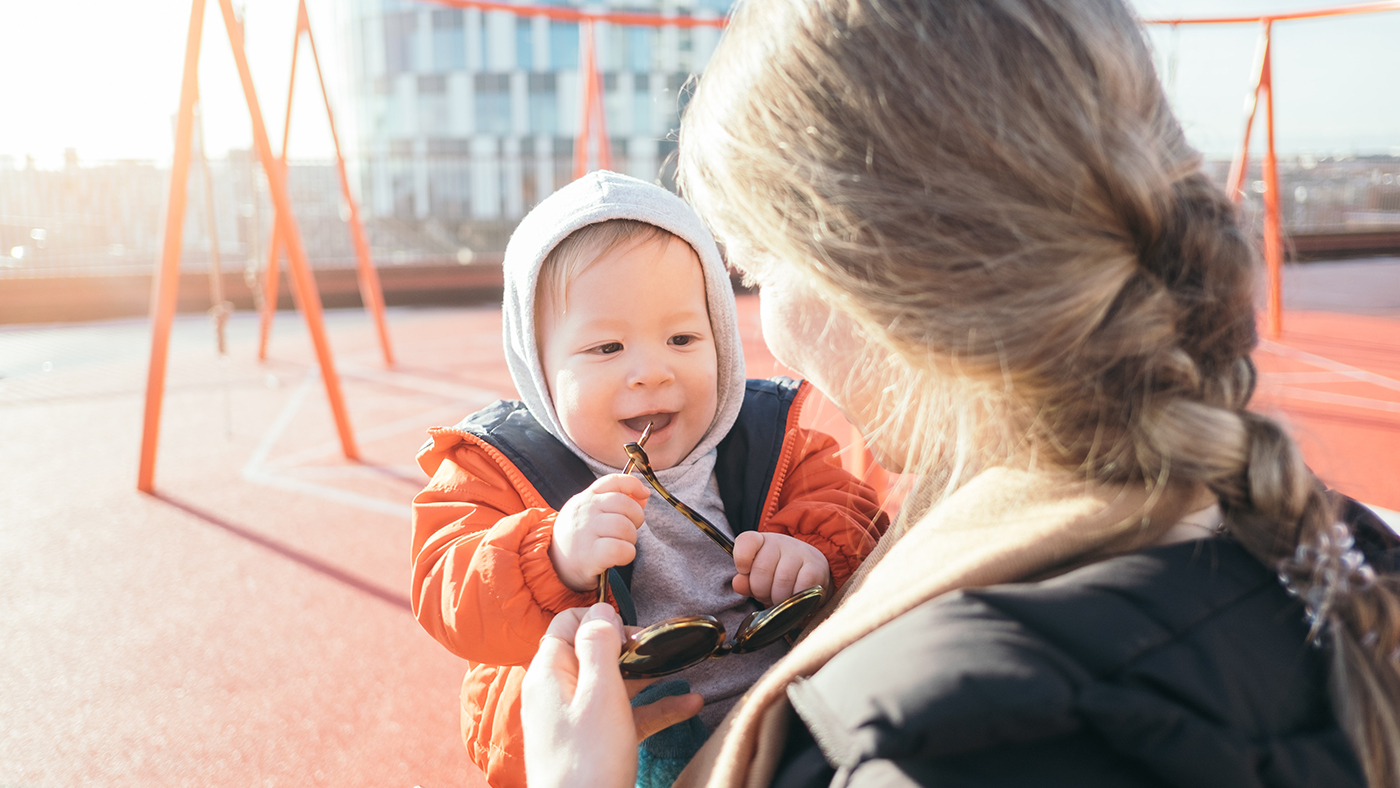When you copy a sound that they make they repeat the same sound

Your baby’s ability to produce sounds is ever growing. They are repeating short sounds such as ‘da, da, da’ or ma, ma, ma’. Your baby is becoming more aware that the sounds they make are positive and they are learning how to create more sounds.
The way your baby is handled and responded to has a big impact on how they develop socially. Your baby will learn to be more animated if you are receptive and spend time chatting to and copying each other. Your baby is experiencing a massive burst of neural connections being made at this time. The new connections are then consolidated from pleasurable relationships and their developing bond with you, [1] this is happening all the time, especially when repeating and duplicating your noises. When your baby’s brain experiences a positive reaction, vital connections begin to form. [2]
You may notice your baby watches your eyes and mouth. Doing this helps them to make connections between the mouth movement and the sound being produced. Babies learn language by absorbing information through what they see and hear, enabling them to process the meanings associated with those sights and sounds. They are learning to imitate the sights and sounds of other people using their mouths, tongues, and ears in order to generate their own sounds.
For your baby to determine how to make the speech sounds they have been seeing and hearing, they are dependent on repetition, copying, and imitation. Playing endless clapping games or taking turns sticking out tongues or squealing will benefit your baby, as they are naturally drawn to imitate you by staring at your face and repeating behaviours over and over. Your baby may be starting to distinguish between pitch and tone and they may use different sounds when interacting with different people.
Baby conversations
If your baby makes a certain sound or noise, copy it and wait for them to make another. You're conducting a "baby conversation" and teaching the concept of turn-taking in this way. During your ‘baby conversations,' make sure to smile and use facial emotions as this helps your baby to understand this is something fun. [3]
What next:
Your baby will become ‘tuned into’ the speech sounds and everyday sounds that they may hear, such as the doorbell or a phone ringing. As your baby develops, they should not only turn but also search for the sound they hear. Developing their listening skills is imperative for speech development.
As your baby becomes engaged in more frequent ‘baby conversations’, new sounds will begin to develop. Multiple sounds will be repeated, rather than the same sound.
References:
[1] Gerhardt. S (2015). Why Love Matters. How Affections Shapes A Baby’s Brain, 2nd Edt. Routledge.
[2] Sunderland. M (2016). What Every Parent Needs to Know 2nd Edition. Dorling Kindersley
[3] NHS Great Ormond Street Hospital for Children. (2021). Speech and language development from birth to 12 months. Available: Speech and language development from birth to 12 months | Great Ormond Street Hospital (gosh.nhs.uk)